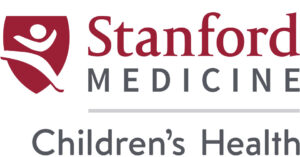New Grants Address Transition to Adult Care, Medical Complexity, Equity in Developmental Disability Services
PALO ALTO – Identifying ways to pay for transition from pediatric to adult care, using data to identify children with complex medical and social needs, and addressing pervasive racial and ethnic inequity in funding services for children with developmental disabilities are the focus of three grants recently approved by the board of directors of the Lucile Packard Foundation for Children’s Health.
The new grants:
Paying for the Transition from Pediatric to Adult Health Care: Phase 2: Lack of payment is one of the most significant barriers to providing quality transition services for youth with special health care needs. Billing codes are not specific to transition, and transition services often are not required in managed care contracts. Based on a previous report recommending value-based transition payment, this grant will enable the National Alliance to Advance Adolescent Health to identify and assist commercial insurers and Medicaid programs to pilot test alternative payment strategies. The funding also will support development of related communication and technical assistance materials to be disseminated nationally.
Health Complexity Indicators to Guide and Inform Policy, System- and Practice-Level Efforts: Supporting and Learning from Efforts in Oregon: Children with complex medical conditions often face significant social barriers to accessing and benefiting from available health care. The high cost of their care and their demands for professional time makes them of special interest to health insurers and providers. In a second phase grant, the Oregon Pediatric Improvement Partnership/Oregon Health Sciences University will disseminate findings from its experience with using system- and practice-level data to better identify and serve children with health and social complexity who are covered by Medicaid. Additionally, the project will provide technical assistance and facilitation to Oregon Medicaid and its managed care partners to develop clinical capacity to care for children with health complexity.
Equitable Funding for Children with Developmental Disabilities: Phase 3: Building on previous progress in documenting and beginning to address ethnic and racial funding inequities among California’s Regional Centers for Developmental Disabilities, Public Counsel will use this third phase of funding to promote more equitable access to services by analyzing data on the allocation of funds and services; raising public awareness about clients’ rights; and working with legislators on legislation to hold Regional Centers accountable for reducing disparities in access to services.
###
About the Lucile Packard Foundation for Children’s Health: The Lucile Packard Foundation for Children’s Health is a public charity, founded in 1997. Its mission is to elevate the priority of children’s health, and to increase the quality and accessibility of children’s health care through leadership and direct investment. Through its Program for Children with Special Health Care Needs, the foundation supports development of a high-quality health care system that results in better health outcomes for children and enhanced quality of life for families. The Foundation works in alignment with Lucile Packard Children’s Hospital Stanford and the child health programs of Stanford University.

